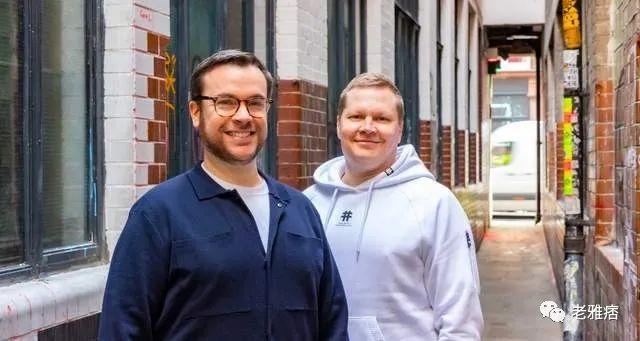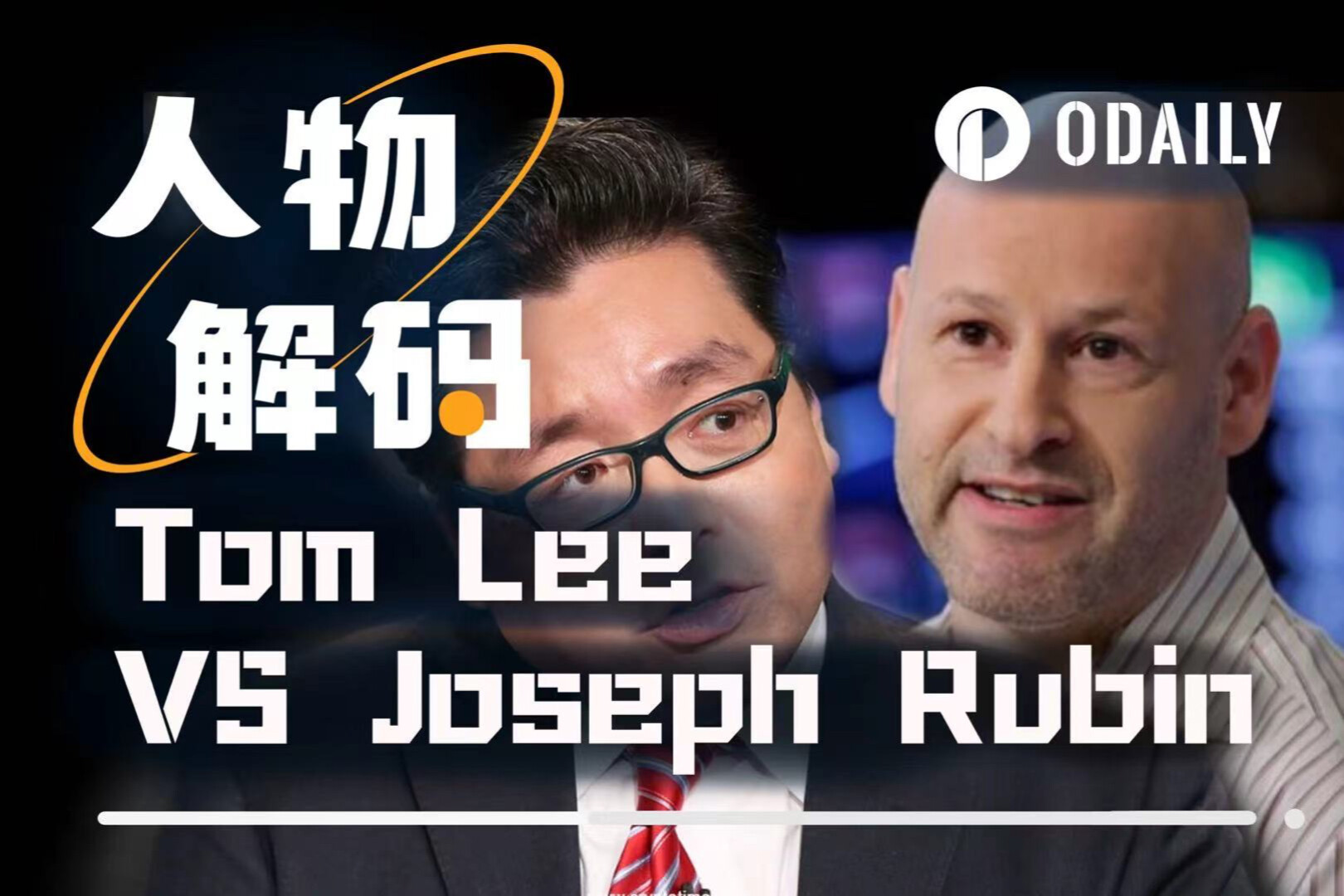Original title: "Who Is Investing in the Metaverse?" We Talked to Top VCs »
old yuppie
This article comes from the WeChat public account:old yuppie
More recently, some of the metaverse's luster has faded, with Elon Musk calling it little more than a marketing gimmick, and the average price of NFTs has plummeted.
But big corporate interest in the Metaverse hasn't diminished one bit. Microsoft's $68.7 billion acquisition of gaming company Activision Blizzard, while Epic, maker of the multiplayer online game Fortnite, recently acquired Bandcamp, a community of independent music artists, signaled its intention to move further into online concerts and music discovery. HSBC announced plans to close 69 physical bank branches, and at the same time purchased a piece of virtual land on the metaverse platform The Sandbox for an undisclosed amount.
Meanwhile, some 70 fashion brands, including big names like Estée Lauder, Tommy Hilfiger, Dolce & Gabbana and Forever 21, participated in a virtual fashion week on Decentraland, another metaverse platform.
Clearly, the Metaverse is still big business, and venture capital investors, even more modest funds, are looking for deals in this space.
"Web3 and the metaverse are here to stay -- not just in one industry, but in all industries," said Sabina Wizander, partner at Creandum.
While many of the big recent deals have been in the US, European investors see the arrival of the Metaverse as a chance for Europe to regain some of the technological dominance it has lost over the past 15 years.
Henry Gladwyn, partner at OMERS Ventures, said: "If the Metaverse ends up being primarily game-based, then Europe has a chance to lead because some of the world's leading gaming companies are from Europe."
secondary title
Luke Alvarez, Hiro Capital
Investments: Frameplay, Dreamcraft Entertainment, Keen Games
Hiro Capital, Europe's oldest investment beast, recently launched a second fund - €300 million - to complement its first €115 million fund launched in 2019. Hiro Capital has also launched a special purpose acquisition company and hopes to bring game companies with an enterprise value in the €400 million to €2 billion universe to the stock market.
Hiro has a solid gaming pedigree. It was founded by Ian Livingstone, former chairman of Tomb Raider game publisher Eidos, sometimes referred to as"father of laura". Yes, it's called Hiro Capital, named after the main character in Neal Stephenson's Snow Crash, which predicted the Metaverse back in 1992.
The first investments from the Hiro Capital 2 fund are expected to be announced next month, said founder and partner Luke Alvarez. The bulk of the fund will target startups in Europe, about 15% in the US, and a small portion in other markets (for example, Hiro Capital recently invested in an Indian real-time gaming company called Loco).
"It's still early days for the Metaverse, and we'll be building it over the next 20 years"
“We see the Metaverse as part AR and VR, part massively multiplayer games, and part Web3 and cryptocurrency,” Alvarez said. He believes there will be a "crazy hybrid overlapping metaverse" in the future, rather than a metaverse dominated by Meta or Microsoft.
Alvarez is also very bullish on European companies taking a big slice of the Metaverse market.
“2022 is as exciting an opportunity as 2002, when we were at the dawn of the mobile internet, which led to Facebook and companies like Google, Tencent, Alibaba and Baidu.”
While European companies have clearly missed the mobile internet era, Alvarez believes Europe can play a huge role in the metaverse.
He points out that a third of the world's gaming content is developed in Europe, and many early metaverses such as Minecraft (now owned by Microsoft but originally created by Sweden's Mojang) were developed here . Metaverse platform The Sandbox, although now owned by Hong Kong-based Animoca Brands, was founded by Frenchman Sebastian Borget.
“There are more game developers in Europe than in the U.S., and it’s generally cheaper to develop stuff here,” Alvarez.
Alvarez is also eyeing companies out of Oxford and Cambridge that are developing hardware for augmented reality and virtual reality. “We’re looking at developments like laser holography and other ways of delivering images to people’s eyeballs. These will help create a hyperscale AR proposition for billions of people, hopefully within 10-15 years.”
Alvarez expects to invest 20 percent of the new fund -- about 10 or so deals -- in deep technology companies. That could mean investing in no-code gaming platforms that make it easier for kids to create their own games, or in-game advertising that would allow, for example, a brand to place a logo on an in-game T-shirt.
secondary title

Henry Gladwyn, OMERS Ventures
Investment: Medal.tv
Omers Ventures is a general fund that has only recently begun to consider the idea of investing in areas such as gaming and cryptocurrencies.
"Gaming and cryptocurrencies have been a journey for us," said partner Henry Gladwin. "But the metaverse is a big trend, and we have to try to be a part of it."
So, in December, OMERS chose to lead a $45 million Series C round into Medal.tv, a company that makes it easy to create and share clips of memorable gaming moments.
Gladwyn believes that the metaverse and games are the next phase of the internet and social media.
"A lot of what gaming has to offer is an interesting alternative to the problems that Web2 has, which relies on having a large audience on the platform and then trying to connect people through their interest groups," he said. Leads to extremism and obsession, and it's not always the natural way for people to socialize."
"If you get a Roblox in your portfolio, it will give you a return on the fund."
Gladwyn says he's looking for games that can truly be social experiences. Medal, for example, is trying to build a social network for gaming, with shareable clips of gaming moments. But again, OMERS may invest in game engines, or other things related to games.
Every Metaverse investor secretly hopes to find the next Roblox, Gladwyn said. "If you have Roblox in your portfolio, it's going to give you big returns."
But he worries that established games are so dependent on finding a hit to generate hype that these companies may not have long-term staying power. All eyes are on Roblox's performance.
secondary title

David Haynes and Petri Rajahalme, FOV Ventures
David Haynes, one of the founding team of music streaming company Soundcloud, teamed up with XR industry veteran Petri Rajahalme to launch FOV Ventures, a fund dedicated to early-stage Metaverse startups.
The €25 million fund will support 25-30 seed and pre-seed Metaverse startups. FOV will invest in three different types of Metaverse companies. First up are companies that create games and experiences in the metaverse, including digital fashion, shopping, and concerts.
They're also looking at startups in the corporate metaverse -- virtual meetings or digital twins of factories. A third area of investment will be creating"tool"startups: platforms, avatars, sound effects and backgrounds.
secondary title
Sabina Wizander, Creandum
Investors: Resolution Games, Armada Interactive, Scapin
Creadum is a comprehensive company, but recently decided that it needs to participate in metaverse and Web3 trends. It's clear that the Metaverse and Web3 are here to stay -- not just in one industry, but across all industries.
Wizander remains skeptical about NFTs and cryptocurrencies. "I'm still looking for a use case that solves a real problem," she said. "I wouldn't want to invest in a speculative NFT project."
However, Creandum did invest in Scapin, a metaverse game where people can socialize with each other. Like OMERS Ventures' Gladwyn, Wizander sees the metaverse as an evolution of the current internet.
"When people are skeptical about whether we're actually going to live in these virtual worlds, I say -- aren't we already doing that? We're looking down at our phones all the time. It's just that the main thing we're consuming right now is text or video," she said.
If someone had told us five years ago that we would be sitting in video conferences 12 hours a day and that this would be the only way we would do business, we would not have believed it. she says:"The Metaverse idea is just the next step in how we spend time online in more meaningful ways.
According to Wizander, there will be multiple Metaverse platforms -- a few large ones and a long list of smaller ones. They're going to need to be interoperable, and people are going to need to be able to use their profiles and avatars on all of these platforms.
Creandum is interested in virtual goods and fashion. A big question for Wizander is where the power will be - will the big Metaverse platforms want to control the identities of their visitors, or will they allow users and third-party manufacturers of virtual goods to own their identities and products?
Predicting which platforms will be the most popular among users is also a gamble, she said.
secondary title
Ziv Reichert, LocalGlobe
Investment: Improbable, 100ms
"Our belief is that there won't be a single metaverse, there will be millions, like our website today," said Ziv Reichert, a partner at LocalGlobe.
“I think the Metaverse is the transition from a two-dimensional internet to a three-dimensional internet. The prototypes of that are already in Roblox, Minecraft, and Fortnite. It doesn’t have to be through VR or AR, it can be mobile-first.”
LocalGlobe has invested in Improbable, a game engine that is trying to get thousands of people into the same game server at the same time. Technology like this is the foundation of the Metaverse platform -- it's hard to hold a big concert or sporting event in a virtual world if you can't get a lot of people in at the same time.
LocalGlobe also wants to invest in tools that make it easier for anyone to build a 3D world -- the equivalent of what Squarespace and Wix have done for building websites. Reichert is also interested in how user identities are built in the metaverse and digital fashion.
secondary title
Max Bautin IQ Capital Fund
Investors: Virti, Cauldron, Audio Analytic
Cambridge-based IQ Capital, a deep tech specialist fund, has invested in startups such as Virti, which provides VR training for companies, and immersive games studio Cauldron, which was spun out of fintech unicorn Thought Machine.
Bautin is wary of the metaverse hype."He said."He said.
“We invested in Virti because it’s a virtual training company, and it’s a fantastic space that every company has the potential to use. Any job needs training, and VR can meaningfully increase its effectiveness,” he told Sifted.
secondary title
Anne Glover, Amadeus Capital Partners
Investments: XYZ Reality, V7, PolyAI
Anne Glover, co-founder and CEO of Amadeus Capital Partners, is also a skeptic. She believes that the surreal experience associated with VR headsets can only appeal to some people.
"There's a lot of money to be made from it, but I personally don't think it's going to take over all areas of life," she said.
So when it comes to the metaverse, Glover and her team are more focused on commercial applications, such as XYZ Reality, a London-based startup that creates augmented reality overlaid architectural designs for construction sites. Glover has also personally invested in a VR company that creates a safety training experience for oil rig workers — able to put them on a virtual oil rig before they have to face the dangers of the real thing.
secondary title
David Glick, Edge VC
Investments: Mojo Vision, Dream Corporation. BLAST Prime Minister
Edge does not present itself as a metaverse investor, but leans more towards investing in the broad definition of the creative economy.
Like many Metaverse investors, Edge's focus is on the tools to build the Metaverse, and Edge is eyeing VR training and education because it believes more training will take place in a more immersive environment. Surgeons, for example, will use immersive VR as part of their training as haptic technology becomes more advanced to mimic living surgery.
Edge companies have already invested in some hardware that could help enable the metaverse — such as Mojo Vision, which is developing smart contact lenses with built-in displays, and Otherworld, a London-based VR entertainment venue.
Some of Edge's portfolio companies, such as Dream Corporation. BLAST Premier and Jungle, initially focused on the Web2 experience, but are now expanding to Web3, so Edge is there by default as a metaverse investor.
For example, Dream Corporation is a virtual reality theme park that offers a variety of virtual reality games, experiences, food and beverages. One of its sub-brands, Otherworld, has real locations in London and takes you to 16 unique VR locations.
BLAST Premier provides elite-level esports and gaming content to audiences around the world and wanted to develop a more immersive version of the game and provide creator tools to allow gamers to monetize their creations.
secondary title
Other European meta-state investors to watch
Cambridge Innovation Capital (UK) - invested in Audio Analytic, AudioTelligence.
Octopus Ventures (UK) - invests in. XYZ Reality, Audio Telligence
Taavet+Sten (Estonia) - Invest in Ready Player Me
PROfounders (UK) - Invested in Talewind, Sidequest, Leap Motion (now part of Ultraleap).
Picus Capital (Germany) – invests in Invact Metaversity
Nordic Ninja (Finland) - Invested in Ready Player Me, DappRadar, Varjo
Presto Ventures (Czech Republic) – invested in Wolf 3D, Oddin, NFT Scoring
Koha Capital (Estonia) - Invest in Ready Player Me
Original link



